Elmo Nüganen
出生 : 1962-02-15, Jõhvi, Estonia
略歴
Elmo Nüganen (born 15 February 1962 in Jõhvi) is an Estonian theatre director, film director, and actor. He has been the artistic director of the Tallinn City Theatre since 1992. He was a graduate of the Estonian Academy of Music and Theatre in 1988 and then a professor at the academy in 1998–2002 and 2008–2012. He directed the war films Names in Marble from 2002 and 1944 from 2015. Names in Marble was seen by more than 168,000 people in Estonia and was selected for the 2003 Taormina Film Fest, while 1944 had the highest opening-week audience numbers in Estonian film history and became the country's submission for the Academy Awards.
Nüganen has received multiple awards for his work in theatre, including the Estonian Annual Theatre Award for Best Director in 1992, 1995, 2000, 2007, and 2010, and the Estonian National Cultural Award in 1996, 1999, and 2009.
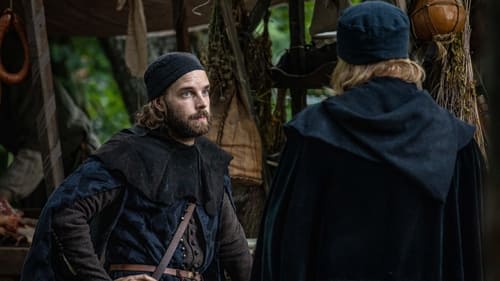
Writer
Melchior’s bride Keterlyn happens to witness an attack on a young man. He has lost his memory and doesn’t know who he is or where’s he from. The only clue is a strange partial letter found on him that warns of grave danger. Melchior’s attempts to understand the circumstances of the young man’s memory loss lead him to uncover a hidden dead body. The partial letter gives Melchior an idea how to lure the killer into a trap... but this time the danger comes too close to home.

Director
Melchior’s bride Keterlyn happens to witness an attack on a young man. He has lost his memory and doesn’t know who he is or where’s he from. The only clue is a strange partial letter found on him that warns of grave danger. Melchior’s attempts to understand the circumstances of the young man’s memory loss lead him to uncover a hidden dead body. The partial letter gives Melchior an idea how to lure the killer into a trap... but this time the danger comes too close to home.

The Old Woman lives in a deep Estonian forest, alone and isolated. Her parents came here to settle to raise and educate their children in the right way. They all died long ago. The Old Woman leads her farm, until one day her world almost collapses due to the intrusion of a lost stranger.
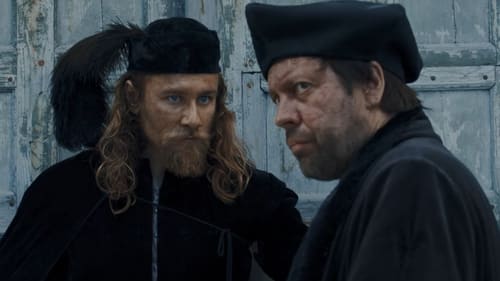
Writer
In the middle of the night, a drunk town guard happens to meet the daughter of a rich merchant… who drowned herself into a well 10 years ago. Soon after the town guard falls dead from the tower. This is followed by two other suspicious deaths. Doubting the existence of the ghost, Melchior has a hunch that these ‘accidents’ are part of a heinous crime. Tracking down the killer, his path will cross with heretics, old feuds and dark family secrets.

Director
In the middle of the night, a drunk town guard happens to meet the daughter of a rich merchant… who drowned herself into a well 10 years ago. Soon after the town guard falls dead from the tower. This is followed by two other suspicious deaths. Doubting the existence of the ghost, Melchior has a hunch that these ‘accidents’ are part of a heinous crime. Tracking down the killer, his path will cross with heretics, old feuds and dark family secrets.

Writer
In medieval Tallinn, a famous knight who is freed from the pirates of the Baltic Sea is murdered. The hero's head is cut off and his mouth is stuffed with coins. The gold chain he bought the same day is missing. The bailiff orders Melchior, a pharmacist , to investigate the crime. The clever young man discovers that the slain was looking for a mysterious "Tallinn prisoner" and the traces lead to the Dominican monastery. A fabulous sequence of bloodwork is unleashed - anyone who comes into contact with this secret is in danger of dying.

Director
In medieval Tallinn, a famous knight who is freed from the pirates of the Baltic Sea is murdered. The hero's head is cut off and his mouth is stuffed with coins. The gold chain he bought the same day is missing. The bailiff orders Melchior, a pharmacist , to investigate the crime. The clever young man discovers that the slain was looking for a mysterious "Tallinn prisoner" and the traces lead to the Dominican monastery. A fabulous sequence of bloodwork is unleashed - anyone who comes into contact with this secret is in danger of dying.

Major Kurg
A historical spy-thriller set in 1939 about an Estonian intelligence agent tasked with uncovering the Soviet double agent in their ranks.
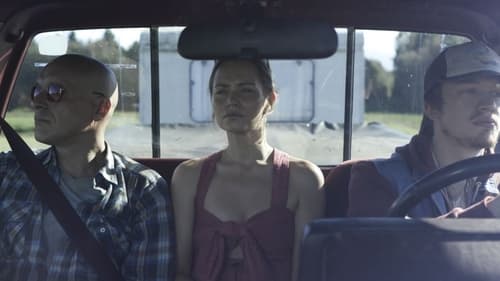
Boss
Karina and Martin are in a pleasent relation where everyday life flows in an effortlessly accustomed way and no small misbehaviours can shake it’s rush. Life is good. Perhaps it’s this perfection and frequent patterns that make them finally pose a question – is everything to be expected in life? This is a story about following the yearning of your soul. Longing for something other than the present and having the courage to be deliberately lost.

Director
1939年、独ソ不可侵条約が両国の間で結ばれて間もなく、ドイツがポーランドに侵攻して第2次世界大戦が勃発。ソ連も東欧に侵攻し、翌1940年、エストニア等のバルト3国を併合するが、1941年、ドイツは不可侵条約を破ってソ連との戦いに踏み切り、独ソ戦が始まることに。1944年、ともにエストニア人の2人の若者のうち、カールはソ連の赤軍、そしてユーリはドイツ軍の一員として、戦場で向き合う運命と相成る。

Himself
A short film about an old actress Leida Rammo who tries to complete an unfinished theatre house project.
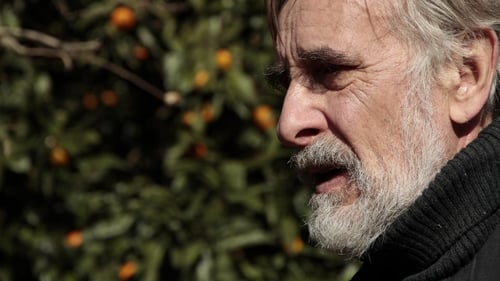
Margus
ペレストロイカの時代、ソビエト連邦から独立しようとするジョージアとアブハジアの間で領土をめぐる紛争が起こった。殆どの村人が逃げ去った後、最後の収穫のために残ったイヴォの農園でゲリラ同士の戦闘が始まり、多くの死傷者が出た。イヴォは瀕死の二人を助けて自宅で介抱しようとするが、その二人は敵同士だった。エストニア人で中立の立場にあるイヴォは「俺の家で殺しは許さない」と宣言し、憎み合う二人に手料理を振る舞う。食事を共にし少しずつお互いの事情を理解し始めた二人は、傷が癒えていくとともに和解へ向かうのだが・・・。

Stranger
When Joko, Ants and Reeda, all in their own good reasons, first enter a casino, they can't possibly be aware of the very existence of the demons inside them. Soon enough, they will know. But then it is already too late and their lives are suddenly caught in a fatal vortex.
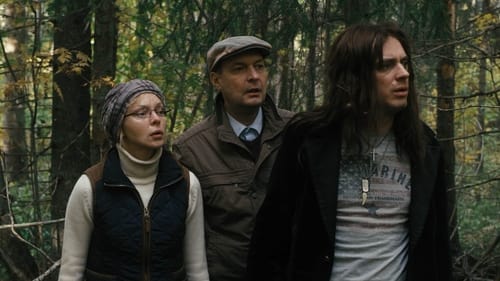
Gas Station Attendant
A demeaning game-show appearance, an ill-advised mushroom-picking outing that goes horribly off the rails, inquiries from a cynical reporter — things just keep getting worse for the middle-aged politician at the centre of Estonian director Toomas Hussar's satire about a shallow, fame-obsessed post-Cold War culture.

Father
Aliide experienced The Great Terror under Stalin’s regime, and decades after her hometown people were deported to Siberia, she lives alone in an isolated house. One night, she finds a young woman in her yard – Zara has just escaped from the claws of the Russian mafia that held her as a sex slave. Survivors both, Aliide and Zara engage in unearthing each other’s motives and gradually, and their stories merge into one, revealing the tragedy of a family during the cruelest years in Estonian history.
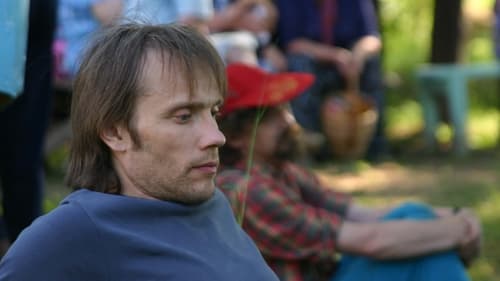
Screenplay
A rich businessman moves to countryside to give his life a meaning.

Director
A rich businessman moves to countryside to give his life a meaning.
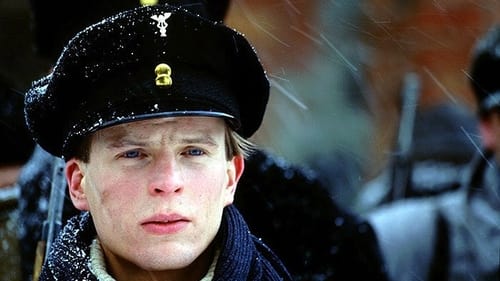
Armored Train Commander
Based on an acclaimed 1935 novel about the War of Liberation (1918-1920) that ensured Estonia's independence, the film tells about a group of young schoolboys heading to the front to fight the army of Soviet Russia.

Screenplay
Based on an acclaimed 1935 novel about the War of Liberation (1918-1920) that ensured Estonia's independence, the film tells about a group of young schoolboys heading to the front to fight the army of Soviet Russia.

Director
Based on an acclaimed 1935 novel about the War of Liberation (1918-1920) that ensured Estonia's independence, the film tells about a group of young schoolboys heading to the front to fight the army of Soviet Russia.

Producer
"Love for Three Oranges" is the first play by Carlo Gozzi (December 13, 1720 - April 4, 1806). He wrote it in 1761. The play is based on a parody of the fairy tale "Love Against Three Oranges". It was originally written as canovaccio (the explanation of the content on which commedia dell'arte actors improvise the text), but later Gozzi also added some dialogue instructions and critical explanations.

Pantalone
"Love for Three Oranges" is the first play by Carlo Gozzi (December 13, 1720 - April 4, 1806). He wrote it in 1761. The play is based on a parody of the fairy tale "Love Against Three Oranges". It was originally written as canovaccio (the explanation of the content on which commedia dell'arte actors improvise the text), but later Gozzi also added some dialogue instructions and critical explanations.

Robert

Tõnu Valjus
Kari Syysmäki, a Finnish Businessman is on a vacation with his wife in Tallinn. When his wife is away a young man enters their hotel room with a gun. He tells to the businessman that he has just tried to rob a bank, but accidentally shot one of the clerks. Now he's hiding from the cops. But when the bank robber forgets his gun on the table, Syysmäki grabs it and shoots him in the back. After that Syysmäki refuses to travel back to Finland with his wife. He stays in Tallinn and soon he's about to face both the cops and the mob of Estonia.

A young man is taken to a small town hospital after a suicide attempt. Rita is a beautiful married Russian nurse taking care of him.
















